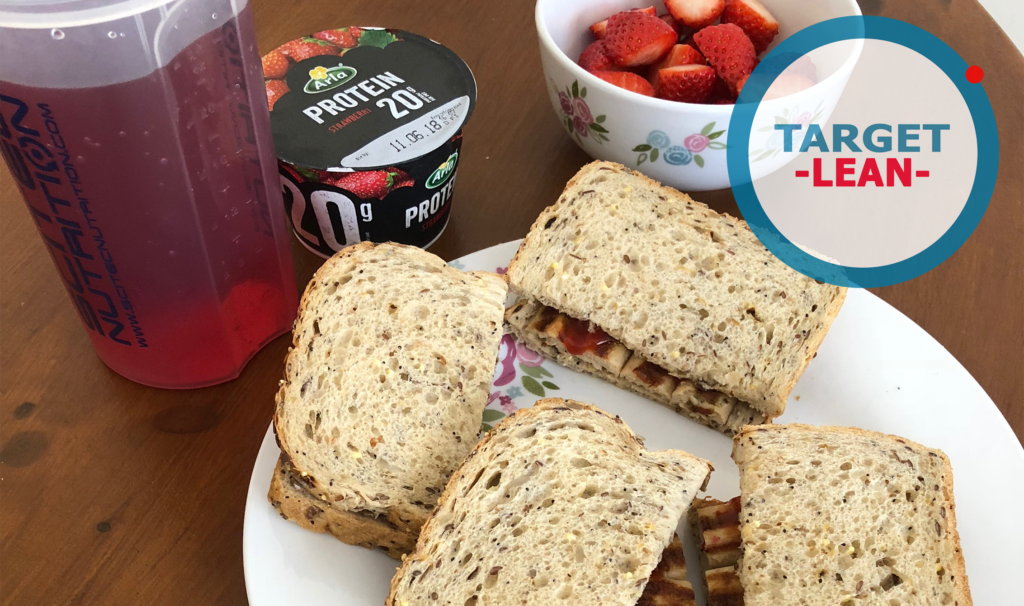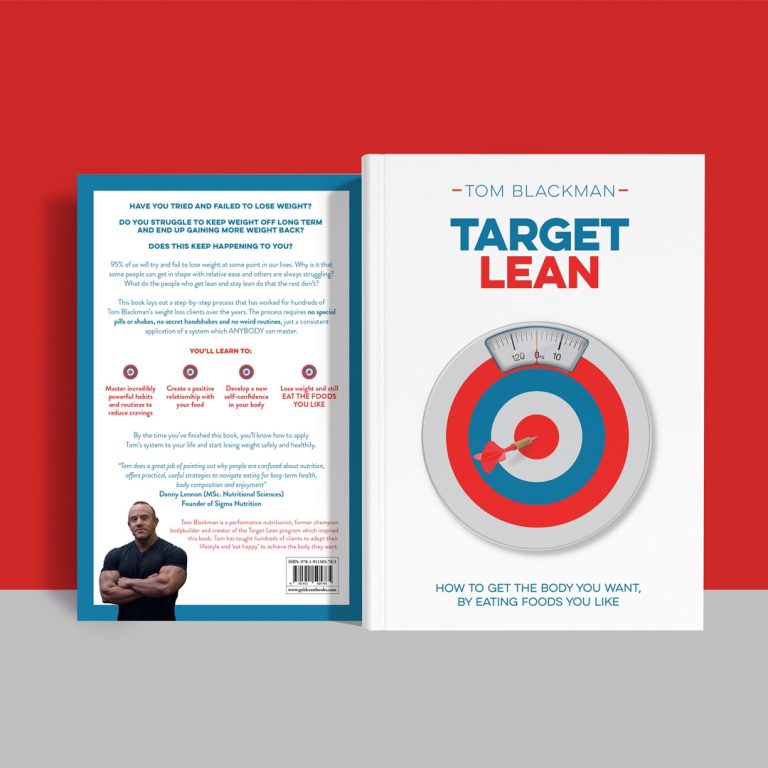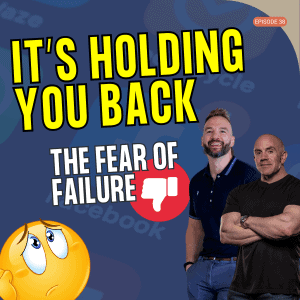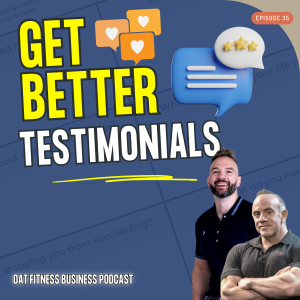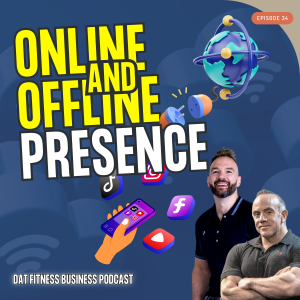Here’s some myths that need to be busted right from the start
1. You can’t gain muscle on a diet (or in a calorie deficit)
You absolutely can, Fat loss doesn’t mean you can’t build muscle.
This has been shown in recent studies by Prof Stu Phillips in trained individuals.
So anyone saying it can’t be done does not read the up to date science journals
2. You need to eat clean all the time to lose fat
No, you could eat a diet consisting completely of twinkies and still lose fat.
This has been done.
Also has been done with ice cream.
It’s dependant on a calorie deficit if you lose weight.
But Twinkies and ice cream only won’t really help muscle gain.
Eating some junk is fine if it fits into your calorie allowance for the day. This is a proven researched fact.
3. Nuts, avocados, peanut butter, coconut oil are GREAT for fat loss
Not really, they are calorie dense foods and it’s very easy to overeat them.
However they do contain healthy fats and nutrients so incorporating them for health reasons in small amounts is fine
4. Eating more fat will make you burn more fat
Yes, but eating more fat and restricting carbs, as a lot of people do, means that the body shifts towards burning fat as a fuel.
BUT NOT BODYFAT necessarily.
If there’s loads of dietary fat coming in then why would the body need to burn body fat for fuel?
Think about it, you don’t go to the bank to get money for shopping if you have cash in your pocket do you?
Going KETO is not the answer, it’s just harder to overeat when you have ONLY fats and protein in your diet but you still will gain bodyfat if you eat more than your calorie allowance
5. You need to eat more to lose weight
NO, if you are not losing weight then that means you are not in a deficit so eating more isn’t going to help. It’s more likely you are not moving around enough as a result of dieting.
6. Eating smaller meals more often does not ‘spike the metabolism’
Proven and researched fact. Whatever your tea selling avocado guru says
7. If someone says they have the ‘Secret’ fat loss formula
- That the Industry doesn’t want you to know about
- That only they know
- That they will tell you about in a webinar/phone call
- They are total bullsh*tters
Right now that’s out of the way
The answer is a two pronged approach
- Gain Muscle
- Lose Bodyfat
To gain muscle you need to have a positive Muscle Protein Balance.
What is this?
Whenever you eat protein or workout in the gym with weights you set off a process called Muscle Protein Synthesis. This is a spike of activity that diminishes over time – about 2–3 hours.
This is the building of new muscle tissue (short explanation) .
When you are not eating protein or training with weights the spike gradually goes into a negative value and you get something called Muscle Protein Breakdown which is a natural process
The trick to building more muscle is to get more of the day into Synthesis than Breakdown.

source – Nutrients Dec 2016
The diagram above shows MPS in Yellow and MPB in Blue. In this diagram MPS exceeds MPB and this means the person is building muscle.
This is why bodybuilders and big strength guys and girls eat protein meals every 2–3 hours so that they can build as much muscle as possible.
Muscle Protein Synthesis happens irrespective of if you are dieting or not and so by definition the act of building muscle is not dependent on if you are in a calorie deficit or not.
However, having more calories in your diet will make it easier to build muscle as you have more energy available to train properly and recover glycogen for training. Also muscle building is a calorie intensive activity for the body so having a surplus of energy does help making muscle building optimal.
But to say that you CAN’T build muscle in a deficit is wrong.
In fact in a recent study by Professor Stu Phillips it was shown that you could. The study was also done in trained individuals which means there was no novel stimulus that untrained people would get from lifting weights for the first time.
To maximise muscle building on a diet phase make sure you do the following
- Eat at least 2g/kg bodyweight of protein a day e.g I’m 100kg so I need at least 200g of protein a day to maintain and build muscle if I’m dieting.
- Eat around 4–5 servings of protein a day spaced out through the day to maximise MPS spikes. Divide your protein requirement from above between these meals
- Train with weights to failure 3–4 times per week. If possible hit each muscle group twice a week. This doesn’t mean destroy legs twice a week but for example, you can do one exercise of squats to failure a few days after your main leg day to give that failure signal and encourage muscle growth. Research has shown that twice a week to failure training seems to be more optimal for hypertrophy.
To lose bodyfat you need to be in a calorie deficit
While you can build muscle in a deficit or surplus, you can’t lose body fat unless you are in a calorie deficit.
This is a hateful truth and evil twist of nature. Fat loss is not forgiving.
Remember that if you are in any deficit no matter how small, if you can maintain it you will lose body fat. So fat loss can be slow or it can be fast depending on the size of the deficit you create.
How do you know how many calories you need to be eating then?
An easy way to do this is
Bodyweight in kg x 22 (female) or 24 (male)
Then minus off 100 calories per stone of weight (7kg) you want to lose
So a man who is 100kg and wants to lose 2 stone (14kg)
100 x 24 = 2400 – 200 = 2200 calories per day.
Sounds pretty easy yes?
Well it always is on paper but the main thing will be sticking to that amount.
You can use My Fitness Pal to track your food intake so that you don’t go over.
If you want to beef up your food volume with very little extra calories then add green veg and leafy salads to your meals which will help give your stomach a stretch response which releases hormones that stop your hunger.
With this in mind, smaller more frequent meals may not be beneficial because the meal may be too small to give your stomach the ‘full’ feeling and so you will become hungry again sooner.
One thing I do with my dieting clients is to give them larger more infrequent meals so that they have a good feed and then stay satisfied for longer which helps overall fat loss efforts.
Keeping protein high in meals in the regions of what I discussed previously will also help as protein is more satiating than carbs or fats. So higher protein diets tend to help curb your cravings.
A good rule of thumb of how much protein to have in each meal is:
0.4g of protein x your weight in kg
So as a 100kg male I would need 40g of protein per meal
This helps satisfy the muscle building need and also keeps me fuller for longer
WINNER winner chicken dinner
Remember that you need to look at the contents of a food not the total weight of a food so a chicken breast has 23g of protein per 100g of weight. So to get my 40g I would need nearly 200g of chicken breast. Keep this in mind when weighing your food as its a common mistake
Always weigh your food raw as cooked weights can be troublesome, eg rice can be different depending on how much water it absorbs while cooking.
Beware of hidden calories
Foods that are healthy sometimes are not helpful for fat loss
eg Avocados, Nuts, Peanut butter, coconut oil all have a high calorie density per 100g. 100g of Nuts for example can contain up to 50g of fat which is 450 calories, as well as containing some protein and carbs.
I have best success with clients when fats are kept low but still in a healthy range, approximately 0.6g fat per 1kg of bodyweight so my fat intake for fat loss is around 60g
You may have seen where this is going.
I haven’t mentioned carbs yet
So we have our calorie amounts for fat loss
100kg bodyweight x 24 = 2400 – 200 = 2200
Then we know how much protein we need = 2g/kg = 200g
Then we know how much fat to eat = 0.6/kg = 60g
Carbs is the last thing left. So how do we know how much to eat?
Protein and carbs have 4 calories per gram
Fats have 9 calories per gram
Protein 200g x 4 = 800
Fat 60g x 9 = 540
Total = 1340
2200 total calories for the day – 1340 = 860 calories from carbs
860/4 (calories in carbs) = 215g of carbs a day.
So me at 100kg looking to lose 14kg of fat
Total daily calories – 2200
Protein 200g
Carbs 215g
Fats 60g
This is a good calorie and macro split to lose bodyfat while building or maintaining muscle
Think I’m talking rubbish?
My stuff really works, it’s not magic just science applied right
If you found this post helpful please let me know. You can also get my free weekly nutrition newsletter with lots of stuff like this in.
